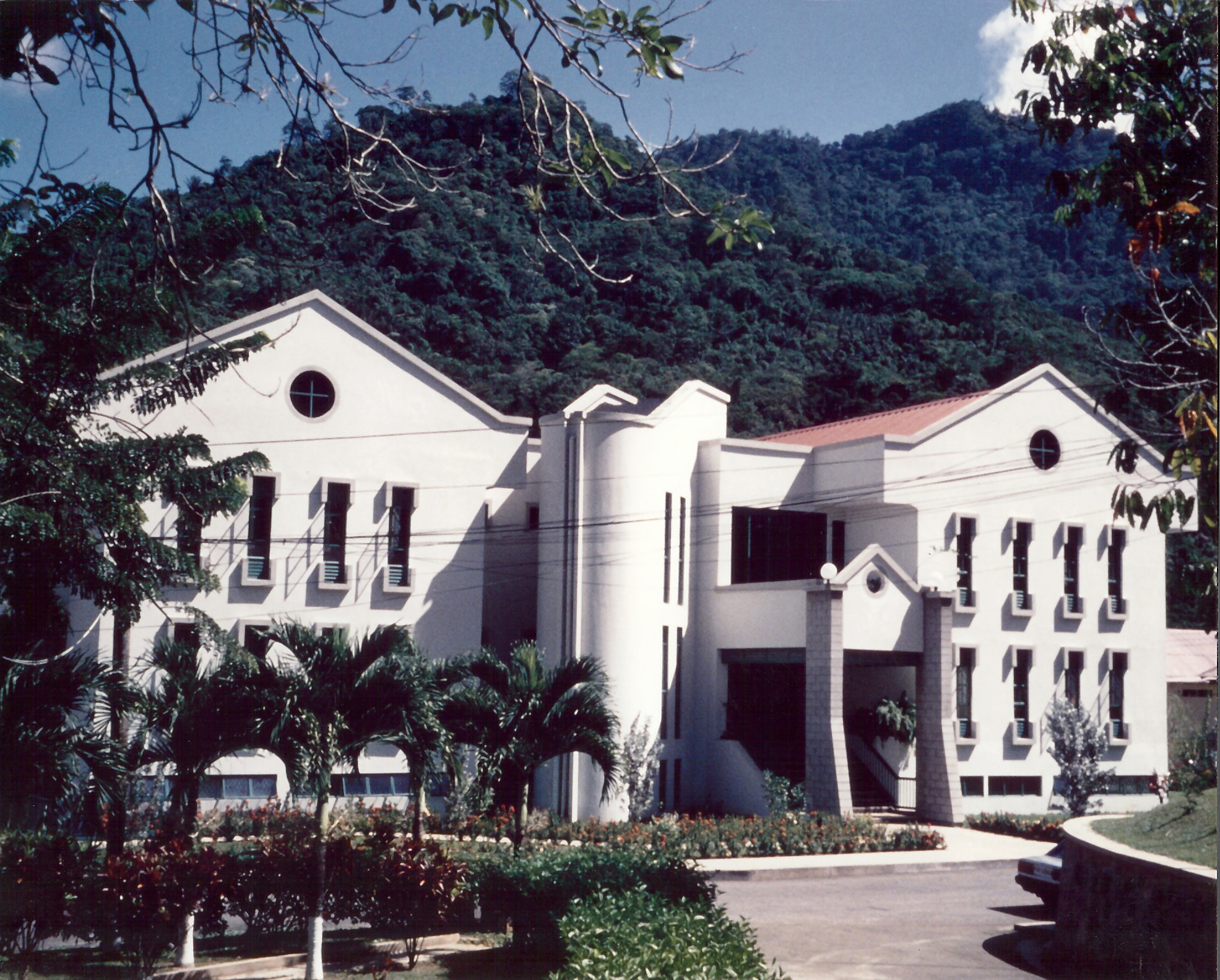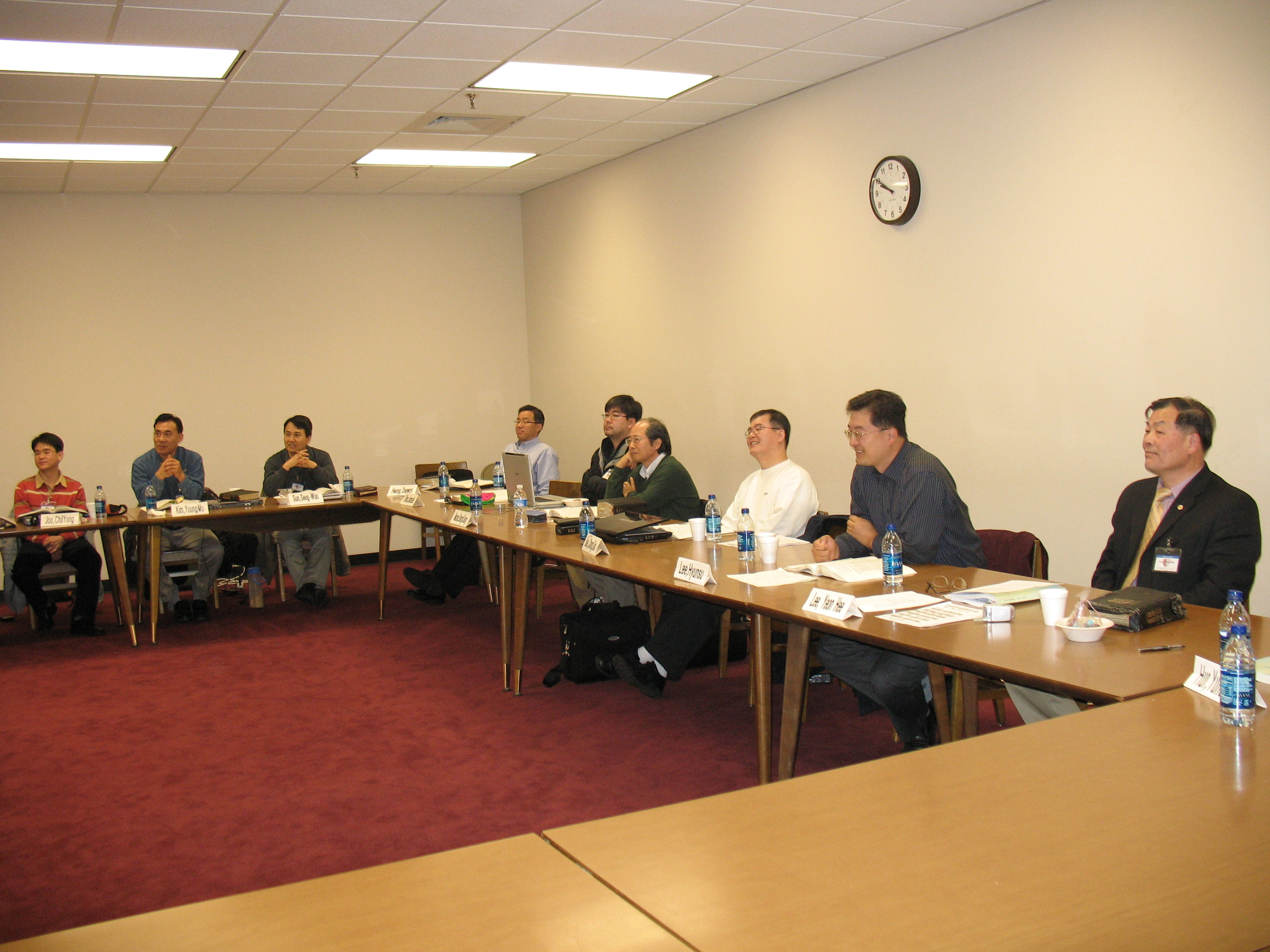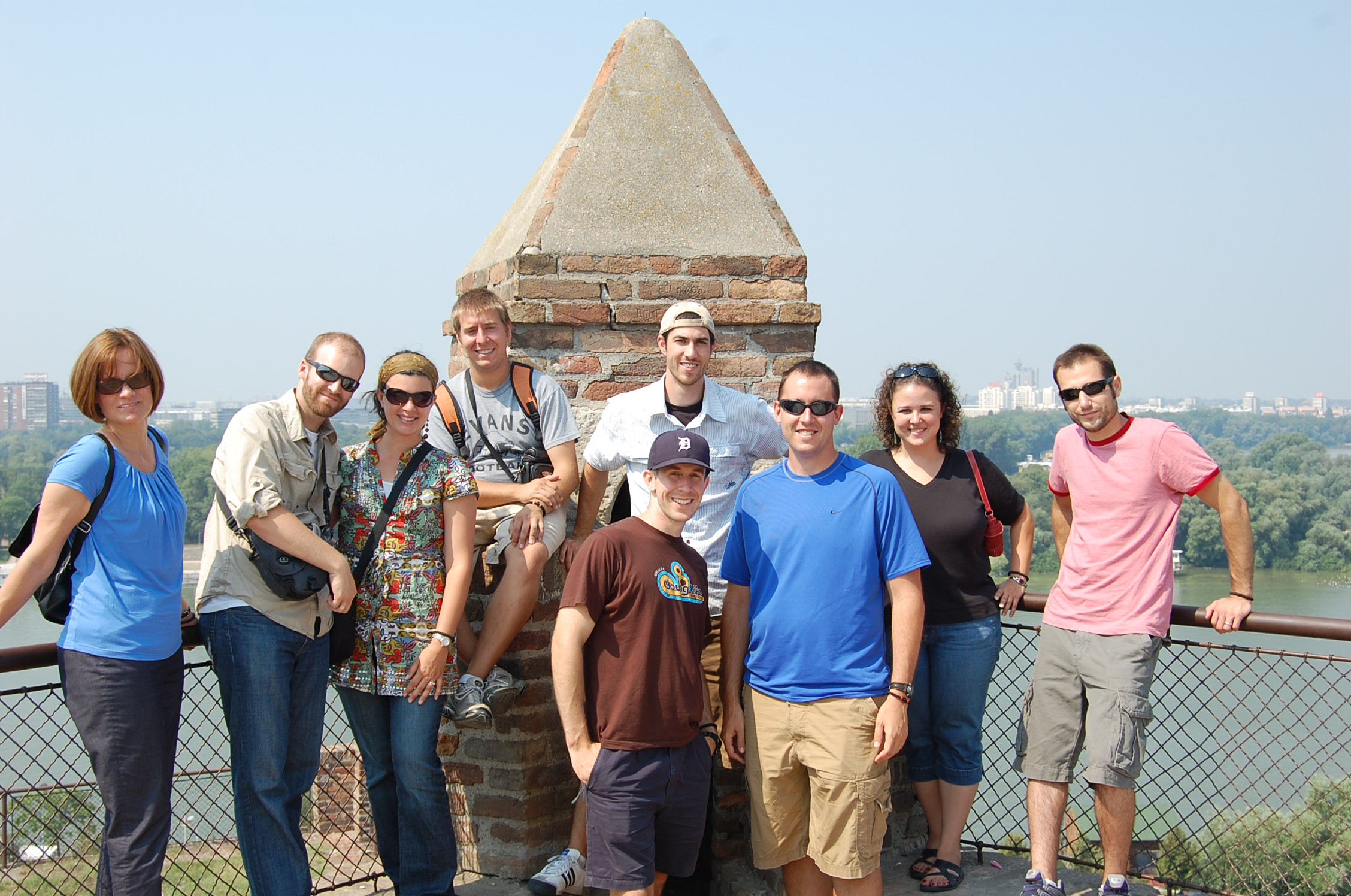World Christianity has arrived!
In the last 30 years, the face of Christianity in the world has been transfigured -- never again to be identified as centered in Europe or North America. Individual scholars and entire seminaries have long recognized this shift, and many schools have enthusiastically embraced the task of equipping leaders for the global church and society.
International theological education is hardly new to North American seminaries, since many participated in and benefited from past Western missionary efforts. But international programs today are markedly different from earlier missionary models. First, there has been a greater emphasis on what McCormick Theological Seminary's vice president for academic affairs, David V. Esterline, calls the preparation of "culturally attentive leadership," by which he means establishing and maintaining a "listening posture" toward the world.
Second, many seminaries have broadened their "missions" focus to include peacemaking in global conflicts, promoting international justice, participating in interreligious dialogue, and alleviating poverty. Some of these efforts have been encouraged by David and Alice Evans of Plowshares Institute, whose books, like The Globalization of Theological Education (Orbis, 1993), have proved influential.
Third, the decision to make "evidence of globalization" a "pervasive theme" in the accrediting standards of the Association of Theological Schools (Standard 3.2.4) has been significant. The standards make clear that "theological responses to globalization include both international dimensions (mission and evangelism in the global or worldwide church and attention to the many contextualized forms of Christianity across the globe) and local dimensions (awareness of cultural and ethnic diversity within North American communities and the churches)."
 |
| While participating in an exchange program at Hanshin University in South Korea, McCormick seminarian Kurt Esslinger attended Presbyterian churches around the country. Visiting one congregation on his birthday, he and others born that week were honored with a cake. (MCCORMICK THEOLOGICAL SEMINARY) |
Schools that comply with the standard tend to emphasize partnership and mutuality over paternalism and control. For instance, North American seminaries cannot start a program or initiate a relationship with a theological school in another country unless invited. Furthermore, courses designed for a North American context that are uncritically imported into the curriculum of a theological school in another country receive negative scrutiny.
The transformation of international theological education from a traditional "mission-sending" to an "intercultural" and "partnership" model has gained much popularity, finding advocates in evangelical, mainline Protestant, and Catholic seminaries. For instance, some evangelical seminaries have renamed "world missions" programs in favor of "intercultural studies." Several theological schools have begun global or world Christianity centers to facilitate the exchange of research, scholars, and church leadership. Twelve ATS-affiliated theological schools have accredited overseas programs. Faculty members with international and intercultural specializations are being hired in increasing numbers. Courses and degrees in intercultural studies have proliferated. International economic development, HIV/AIDS in Africa, ethnic cleansing, and other global issues are now discussed on many campuses.
What has been the impact of these programs on North American seminaries? I talked to leaders of four North American theological schools and discovered some common themes.
McCormick Theological Seminary
McCormick Theological Seminary, a Presbyterian Church (U.S.A.) school in Chicago, has a long history of engagement with urban and multicultural ministries. In 1973 it started a Hispanic ministries program. Later the African-American and Korean- American programs were begun -- the latter is now called the Asian American Ministries Center. The seminary also supports strong international programs. President Cynthia Campbell notes that the origins of McCormick's current international programs can be traced to the 1980s, when student and faculty exchanges were inaugurated with the Near East School of Theology in Beirut, Lebanon.
In 1992, McCormick began a joint doctor of ministry degree program with the Presbyterian College and Theological Seminary in Seoul, South Korea; McCormick faculty taught with the help of translators. Later a similar program was initiated with the Evangelical Seminary of Puerto Rico. In both cases, the joint relationships ended as the partner seminaries developed their own capacity and were able to launch D.Min. programs independently.
Currently McCormick is developing institutional partnerships with the school of theology of the Reformed University in Barranquilla, Colombia, and Hanshin University in Suyuri, South Korea. Faculty and students have participated in semester-long exchanges with these schools, and Hanshin has developed exchange programs with faculty at seminaries in Germany, Brazil, and France.
 |
| The University of the Southern Caribbean on the island of Trinidad serves as an extension site for Seventh-day Adventist Theological Seminary. (ANDREWS UNIVERSITY) |
Seventh-day Adventist Theological Seminary
Seventh-day Adventist Theological Seminary at Andrews University in Berrien Springs, Michigan, was founded in 1934 and has been involved with overseas extension programs for 20 years. According to Denis Fortin, dean of the seminary and professor of theology, the school had previously focused its international attention chiefly on Inter-American Adventist Seminary, which offers graduate programs in Puerto Rico and at several undergraduate Adventist colleges in Latin America and the Caribbean. But by 2000, Inter-American Adventist Seminary had started its own master's program.
In the last ten years, Seventh-day Adventist Seminary has expanded its extension sites at sister Adventist institutions around the world. Master's programs in religion are offered in Romania, Russia, India, and Lebanon. Doctor of ministry degrees are now offered in Russia, Nigeria, and South Africa. Fortin says that extension programs circumvent the "brain drain problem" that can occur when international students come to North America to study and then decide to stay.
Nevertheless, many international students still enroll on the Michigan campus. More than 20 percent of the approximately 400 students in the M.Div. program are from outside North America, and more than half of the 50 seminary faculty members were either born outside North America or have lived overseas at some point.
Golden Gate Baptist Theological Seminary
All Southern Baptist seminaries are committed to missions and training for overseas service, but Golden Gate Baptist Theological Seminary's president, Jeff Iorg, says that his school is unique. Near the San Francisco Bay in Mill Valley, California, the school finds its home amid one of the most ethnically diverse metropolitan areas in North America. Not surprisingly, the seminary has made a significant institutional and curricular commitment to intercultural ministry.
"For more than a decade, every M.Div. student has been required to take courses in intercultural communication and ministry," says Iorg. Less than half of the student body is white, so classes provide intercultural learning environments.
 |
| Reformed Theological Seminary offers a Korean D.Min. program at its Mississippi campus. (REFORMED THEOLOGICAL SEMINARY) |
One of the driving forces behind this commitment to intercultural understanding is the David and Faith Kim School of Global Missions, which encompasses the departments of mission studies and intercultural studies. The Kim School hosts programs at the seminary's Northern California campus in Mill Valley and at its Southern California home in Orange County. Through the school's Global Studies program, seminarians can receive a dual M.Div./M.A. in intercultural studies, which is offered jointly with Union University in Jackson, Tennessee.
Because of the large corps of Southern Baptist missionaries, Golden Gate focuses more energy on equipping skilled leaders for overseas work than on developing partnerships with international seminaries.
Reformed Theological Seminary
Reformed Theological Seminary, which is evangelical and nondenominational, was founded in the mid-1960s in Jackson, Mississippi, but it has expanded to campuses in Atlanta, Charlotte, Memphis, Orlando, and Washington, D.C. Its independence from denominational control offers both advantages and challenges for its international programs in particular.
The seminary's international commitments are rooted in the DNA of its mission-minded founders, according to the school's chancellor and chief executive, Ric Cannada. Today, one of its core commitments is cooperating with multiple denominations and ministry organizations. But the school also offers its own international programs. In the mid-1990s, Reformed began a doctor of ministry program in Korea, bringing the seminary to the attention of that country's millions of Presbyterians. Today, several hundred Korean students are enrolled in a D.Min. program headquartered on the seminary's original campus in Mississippi.
Reformed Theological Seminary has other international ventures as well -- a Ph.D. program in intercultural studies at its Mississippi campus and D.Min. programs in Scotland and Brazil. About 500 students are currently enrolled in a distance-education master of arts in religion program; many of these are international students.
Impact and challenges of international programs
Seminaries that offer international programs assert that these programs have been beneficial in at least two ways. First, interacting with Christian leaders from diverse contexts transforms North American students and faculty. Cynthia Campbell of McCormick Theological Seminary says that listening to the voices of people from other parts of the world has resulted in a greater awareness of Christianity's global reach.
 |
| Students in Golden Gate Seminary's Global Studies program traveled to Serbia last summer to conduct field research in ethnography. (GOLDEN GATE BAPTIST THEOLOGICAL SEMINARY) |
International programs can also promote unity within a theological tradition. Denis Fortin of Seventh-day Adventist Theological Seminary says that the mingling of North American and international students has promoted ecclesial and theological cohesion within the worldwide Adventist church. And at Seventh-day Adventist Seminary and elsewhere, alumni of international programs often become the heads of missions agencies, seminaries, and Bible colleges around the world.
But the flip side of cohesion and unity is the temptation to impose North American points of view on international students. It is sometimes hard to see one-sidedness with regard to international students and international programs -- "we'll teach you, we'll help you, we'll show you." Some participants in intercultural programs are aware of this temptation and try to resist it, seeking an interactive approach in which North Americans are both teachers and learners -- as are the programs' international participants.
Not surprisingly, finances are a significant challenge to international educational programs. It's costly to send North American professors and students to other parts of the world to teach, learn, or serve as administrators. And while the expenses for programs in thriving economies like Korea can be shared with schools or students in the host country, that's not possible in many of the countries in which North American schools are working. Denis Fortin of Seventh-day Adventist Seminary states it baldly: "In our church, places that need us the most can afford us the least." And at McCormick Seminary, President Cynthia Campbell notes that it's been a struggle to keep international programs funded. "The most important thing," she says, "is identifying new monies to permanently endow some of these programs."
But the need for intercultural skills and cultural attentiveness is unlikely to diminish. It's a cliché, but true: Rapid advances in telecommunications and continuing migration throughout the world make international awareness all the more important. Those theological schools that are moving ahead in international education are leading the way in recognizing that Christians around the world are mutual partners in Christian mission -- not just recipients of North Americans' largesse.
A sample of North American seminaries with global studies programs
Asbury Theological Seminary
Beeson International Center
Assemblies of God Theological Seminary
Doctor of Missiology Program
Beeson Divinity School, Samford University
The Global Center
Boston University School of Theology
Center for Global Christianity and Mission
Fuller Theological Seminary
School of Intercultural Studies
Global Research Institute
Garrett-Evangelical Theological Seminary
Hispanic Latino Center
Asian American Ministries
Church and the Black Experience
Gordon-Conwell Theological Seminary
Center for the Study of Global Christianity
Graduate Theological Union, Berkeley
Center for Jewish Studies
Center for Islamic Studies
Institute for Advanced Study in Asian Cultures and Theologies Asia Project
Iliff School of Theology
Center for Global Pastoral Ministry
Lutheran Theological Seminary at Philadelphia
Multicultural Mission Resource Center
North Park Theological Seminary
Center for World Christian Studies
Princeton Theological Seminary
Multicultural Ministry Program
Asian American Center
Virginia Theological Seminary
Theological Studies Program for International Students
Wesley Theological Seminary
Practice in Ministry and Mission
Western Seminary (Oregon)
Division of Intercultural Studies
Questions for boards
■ What does our school's mission statement say about our place in global Christianity? Is international or intercultural awareness important to us?
■ What are our current dashboard indicators on international education? How many students and faculty are from outside North America? How many of our students and faculty have lived overseas? In what other ways can we gauge our international awareness? How do we compare to our peer institutions?
■ Can we invite international students or faculty members to a board meeting to find out more about the challenges and opportunities that they face?
■ What (informal or formal) partnerships do we have with overseas institutions? Do we want to pursue more of these? Or are we overextended?
■ Are there ways in which our international relationships can move from a one-way street (we send, we teach) to a two-way street (we send and receive, we teach and learn)?